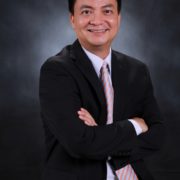Many attempts have been made to profile the Asian Entrepreneur. But I found an easier way to spot them—just check their family name.
The fact is enterprises and entrepreneurship in the Asian context is usually tied up with kin or family.
In the Philippines, the term “Asian entrepreneur” has not been around for long but trading is nothing new. The Chinese and Malay traders have made their presence known throughout Philippine history even before the Spanish came.
Their trading continued even in the presence of the Spanish conquistadores. The Spanish officials’ aristocratic lifestyle was completely dependent on the Galleon Trade for hundreds of years.
This Galleon Trade brought Chinese silk and porcelains to Europe via Mexico and European luxury goods and Mexican silver via Manila.1
Getting to know the Filipino-Chinese entrepreneurs
The Chinese in the Philippines make up only 20 percent of the country’s total population but they are a force to be reckoned with.
Most Chinese in the Philippines are business owners and their lives center around the family business that are usually small and medium enterprises. These family businesses play a significant role in the Philippine economy. A handful of these entrepreneurs run large companies and are respected as some of the most prominent business tycoons in the country.
Chinese Filipinos attribute their success in business to frugality and hard work, Confucian values and their traditional Chinese customs and traditions. They are very business-minded and entrepreneurship is highly valued and encouraged among the young.
We can trace the roots of the Chinese in the Philippines to either the Fujianese or Cantonese dialect groups of the Han Chinese ethnicity. Most pure-blooded Chinese in the Philippines come from the province of Fujian in China and are called Fujianese or Hoklo.
Mixed Chinese people who have either Malay or Spanish (or both) ancestry are called Chinese mestizos. During the Spanish times, they were legally classified as Mestizo de Sangley as printed on their community tax certificates.
A number of Chinese mestizos have surnames that reflect their heritage, mostly two or three syllables that have Chinese roots. They use the full name of a Chinese ancestor and provide a Hispanic phonetic spelling.
The Chinese mestizos are sometimes called Chinoy or Tsinoy, although this term is more accurate for pure-blooded Chinese-Filipinos. However, the Chinoy is not to be mistaken for chinito, a term used to describe physical characteristics—slanted eyes — rather than describing ethnic origin or cultural orientation.
In contrast with the mixed blooded Chinese mestizos, few Chinese Filipinos are plantation owners. This is partly due to the fact that it was only until recently that the Chinese in the Philippines became Filipino citizens. The law prohibited them from owning land.
These days, most Chinese Filipinos are urban dwellers. At least 50 percent of them live within Metro Manila, while the rest reside in the major cities of the Philippines such as Cebu, Iloilo and Davao. They can be found everywhere.
The famous Filipino entrepreneurs are mostly Chinese
Eight out of the most famous Filipino entrepreneurs are businessmen whose families emigrated from Mainland China to the Philippines before World War II when the economy was strong.
Some sought out regular employment and others set up small businesses. Although each took a different approach, there is one common denominator among them before they became famous Filipino entrepreneurs — unparalleled work ethic.
While there are other factors that contribute to their achievements, such as being frugal, a good financial sense, and a strong network of fellow Chinese businessmen for support, the collective image of these famous Filipino entrepreneurs working hard and diligently has stuck in the minds of budding entrepreneurs in the Philippines. Indeed, if one wants to be a successful entrepreneur, there is much to learn from the Chinese Filipino entrepreneurs.
In my next article, I will provide an overview of the most famous Filipino entrepreneurs, mostly Chinese with a few mestizos. We have a lot to learn from these icons of the local business scene. (To be continued)
* * *
Prof. Soriano is an ASEAN Family Business Advisor, Book Author, Executive Director of ASEAN-based Consulting group, Wong + Bernstein Advisory and former Chair of the Marketing Cluster of the ATENEO Graduate School of Business. Fresh from his lecture and book launch at the Phil Consulate General NY and Harvard, he is slated to deliver a talk in LA and share his second book “Ensuring Your Family Business Legacy” to a select group of Family Business owners on February 10 and 12. For those interested to attend, pls email Prof Soriano at sorianoasia@gmail.com. Prof Soriano’s business articles can also be accessed at www.Faminbusiness.com.





